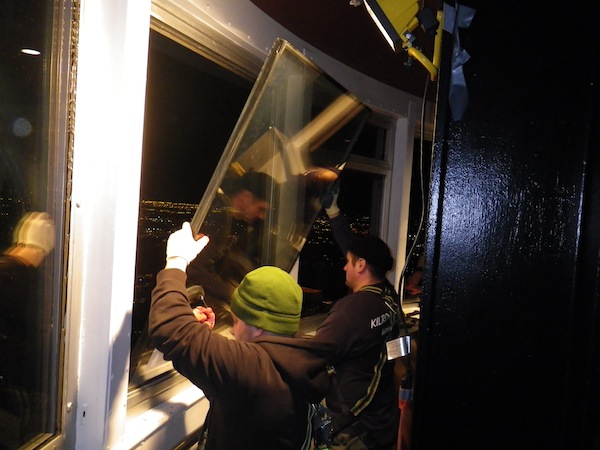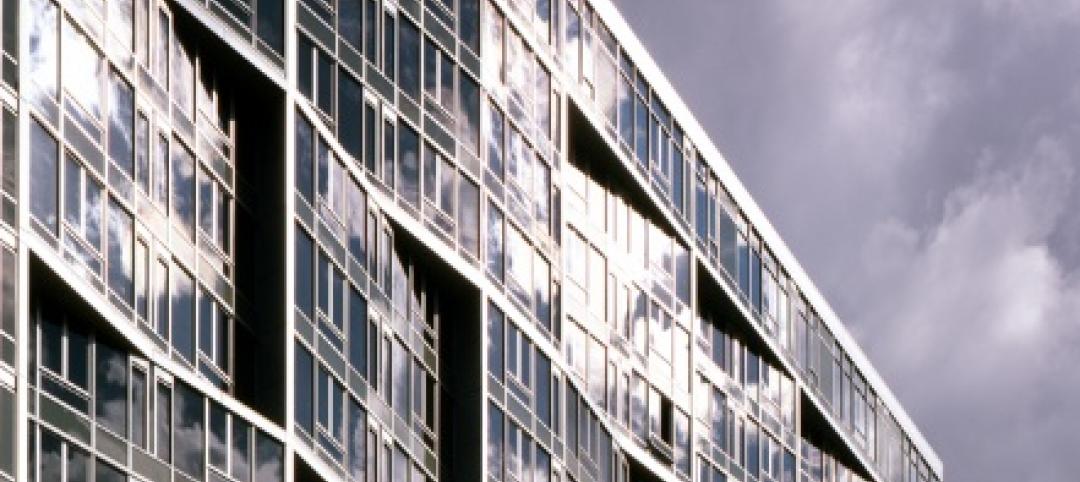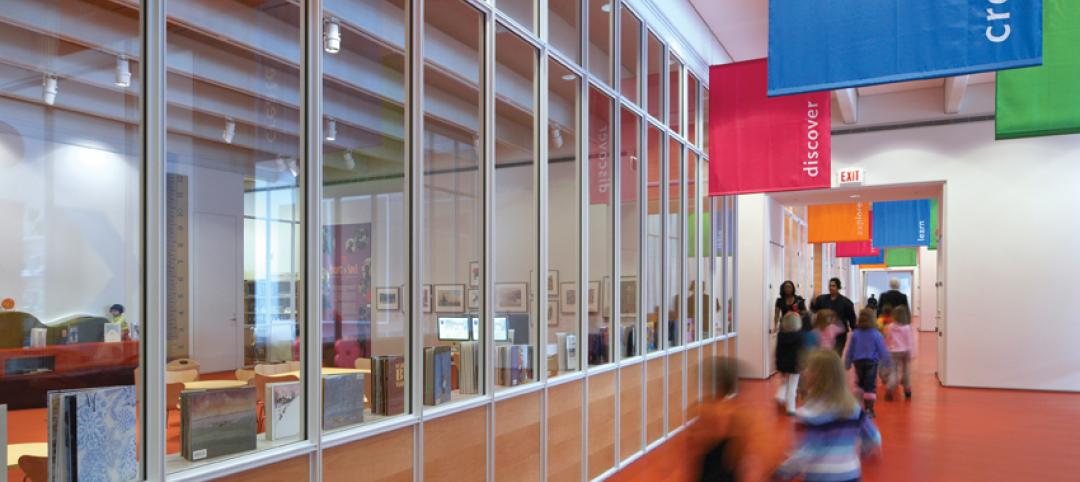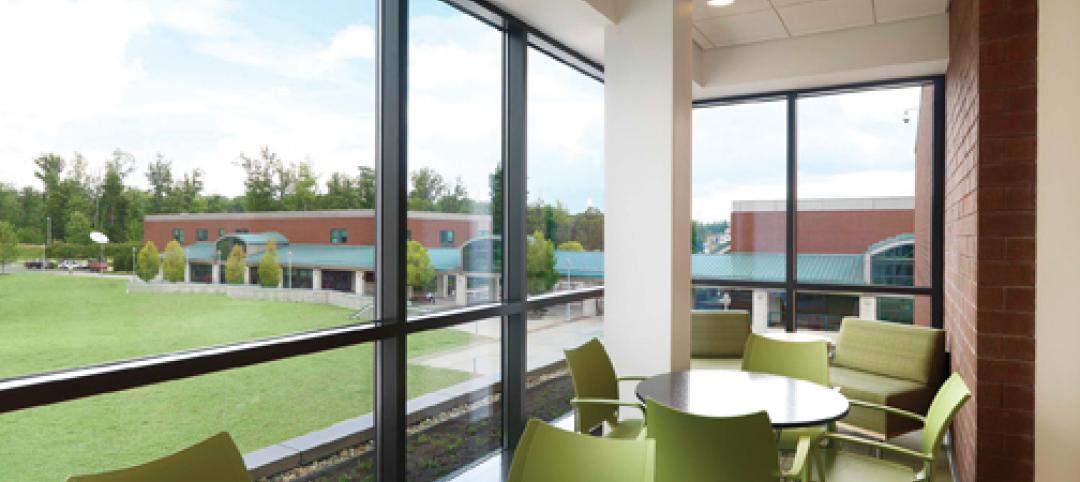Guardian Industries DiamondGuard glass was recently installed on the 102nd story of the Empire State Building in New York City as part of an extensive renovation to update this venerable landmark.
The Empire State Building features two observation decks, one on the 86th floor and the other, almost a quarter mile up in the sky on the 102nd floor, the highest point in New York City. Visitors to the 102nd floor Observatory are treated to a panoramic view of New York where on a clear day you can see 80 miles and five states. Guardian DiamondGuard glass can be found as part of the insulated glass units on the 102nd floor.
With approximately 4 million people visiting the Empire State Building each year, Guardian DiamondGuard was selected because it is 10 times more scratch resistant than regular glass, which means longer lasting glass and clear, unobstructed views.
Because it is permanently fused with the strength of carbon, DiamondGuard has an extremely low coefficient of friction that permanently protects it from scratching, scuffing and hazing. The glass’s scratch resistance is the result of Guardian’s patented vacuum deposition process, developed in response to the requests of facilities managers for a more durable glass product. Guardian DiamondGuard demonstrates sustainability in the built environment because high endurance glass minimizes the need for costly replacements.
The building was awarded LEED Gold for Existing Buildings certification by the U.S. Green Building Council.
“The Empire State Building is an icon – one of the world’s most famous buildings and one of the most popular tourist destinations in New York City,” said Mark Lacasse, group vice president, North America Flat Glass. “Guardian DiamondGuard is ideal for such applications and an important part of the Empire State Building’s renovation.”
The project used Guardian UltraWhite low-iron glass produced at Guardian’s Carleton, Mich. float glass plant. Guardian UltraWhite glass is manufactured with reduced iron content to improve clarity and reduce the green tint inherent in standard clear glass. The DiamondGuard coating was applied at Guardian’s Corsicana, Texas float glass plant and then laminated at the company’s Reedley, Calif. glass fabrication plant. Alpen HPP in Colorado made the insulated glass units with Kilroy Glass and Metal Inc. in New York installing the final product at the Empire State Building.
Guardian DiamondGuard can also be found on the shelves in the Empire State Building’s gift shop.
For more information on DiamondGuard, please visit www.Guardian.com.
About Guardian Industries Corp.
Guardian is a diversified global manufacturing company headquartered in Auburn Hills, Michigan, with leading positions in float glass, fabricated glass products, fiberglass insulation and other building materials for commercial, residential and automotive applications. Its automotive trim group, SRG Global Inc., is one of the world’s largest suppliers of advanced, high value coatings on plastics. Through its Science & Technology Center, Guardian is at the forefront of innovation including development of high performance glass coatings and other advanced products. Guardian, its subsidiaries and affiliates employ 18,000 people and operate facilities throughout North America, Europe, South America, Asia, Africa and the Middle East. Visit www.guardian.com.
DiamondGuard is a registered trademark of Guardian Industries Corp.
Related Stories
| Apr 19, 2011
Is a building sustainable if it kills birds?
Migratory birds were flying into the windows and falling, dead or injured, to the foot of the LEED-Platinum FBI building in Chicago. The FBI building isn't the only LEED-certified structure to cause problems for migratory birds, however. Some of the more than 33,000 LEED-certified buildings in the U.S. use large amounts of glass to bring in natural light and save on energy—and all that glass can confuse birds.
| Apr 14, 2011
How AEC Professionals Choose Windows and Doors
Window and door systems need to perform. Respondents to our annual window and door survey overwhelmingly reported that performance, weather resistance, durability, and quality were key reasons a particular window or door was specified.
| Apr 12, 2011
Entrance pavilion adds subtle style to Natural History Museum of Los Angeles
A $13 million gift from the Otis Booth Foundation is funding a new entrance pavilion at the Natural History Museum of Los Angeles County. CO Architects, Los Angeles, is designing the frameless structure with an energy-efficient curtain wall, vertical suspension rods, and horizontal knife plates to make it as transparent as possible.
| Apr 11, 2011
From Wired Glass to Clear Solutions: Designing with Fire Rated Glass Today
This white paper provides readers with a solid understanding of fire rated glass based on the two types of FRG recognized in the IBC – fire protective and fire resistive glazing. The white paper is intended to give readers the ability to specify the correct, code-approved FRG product for particular applications based on the most up-to-date version of the IBC.
| Feb 10, 2011
7 Things to Know About Impact Glazing and Fire-rated Glass
Back-to-basics answers to seven common questions about impact glazing and fire-rated glass.
| Jan 21, 2011
Virginia community college completes LEED Silver science building
The new 60,000-sf science building at John Tyler Community College in Midlothian, Va., just earned LEED Silver, the first facility in the Commonwealth’s community college system to earn this recognition. The facility, designed by Burt Hill with Gilbane Building Co. as construction manager, houses an entire floor of laboratory classrooms, plus a new library, student lounge, and bookstore.
| Jan 21, 2011
Music festival’s new home showcases scenic setting
Epstein Joslin Architects, Cambridge, Mass., designed the Shalin Liu Performance Center in Rockport, Mass., to showcase the Rockport Chamber Music Festival, as well at the site’s ocean views.
| Nov 16, 2010
NFRC approves technical procedures for attachment product ratings
The NFRC Board of Directors has approved technical procedures for the development of U-factor, solar heat gain coefficient (SHGC), and visible transmittance (VT) ratings for co-planar interior and exterior attachment products. The new procedures, approved by unanimous voice vote last week at NFRC’s Fall Membership Meeting in San Francisco, will add co-planar attachments such as blinds and shades to the group’s existing portfolio of windows, doors, skylights, curtain walls, and window film.












